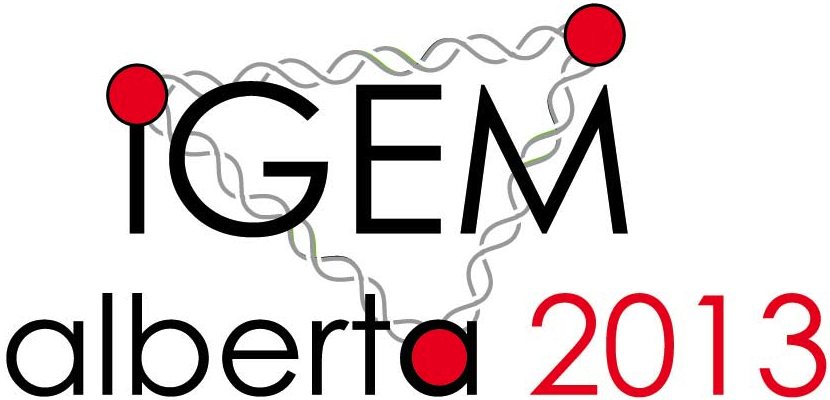Team:Alberta/FAQ
From 2013.igem.org
(Difference between revisions)
| (2 intermediate revisions not shown) | |||
| Line 395: | Line 395: | ||
<div class="titlebar"> | <div class="titlebar"> | ||
<br> | <br> | ||
| - | + | <img src="/wiki/images/4/41/Ab_mapmen_title.png" width="600" height="95"></img><img src="/wiki/images/a/a5/2013-igem-logo.png" width="198" height="95"></img> | |
| - | + | ||
| - | + | ||
| - | + | ||
| - | + | ||
</div> | </div> | ||
<div class="bin"> | <div class="bin"> | ||
| Line 412: | Line 408: | ||
<li><a href="/Team:Alberta/Parts">Submitted Parts</a></li> | <li><a href="/Team:Alberta/Parts">Submitted Parts</a></li> | ||
<li><a href="/Team:Alberta/Accomplishments">Accomplishments</a></li> | <li><a href="/Team:Alberta/Accomplishments">Accomplishments</a></li> | ||
| - | |||
</ul> | </ul> | ||
</li> | </li> | ||
| Line 420: | Line 415: | ||
<li><a href="https://igem.org/Team.cgi?year=2013&team_name=Alberta">Official Profile</a></li> | <li><a href="https://igem.org/Team.cgi?year=2013&team_name=Alberta">Official Profile</a></li> | ||
<li><a href="/Team:Alberta/Sponsors">Sponsors</a></li> | <li><a href="/Team:Alberta/Sponsors">Sponsors</a></li> | ||
| + | <li><a href="/Team:Alberta/Attributions">Attributions</a></li> | ||
</ul> | </ul> | ||
</li> | </li> | ||
| Line 447: | Line 443: | ||
<div class="main"> | <div class="main"> | ||
<div class="block"> | <div class="block"> | ||
| - | <p class="content-title">FAQ</p> | + | <p class="content-title"><img src="/wiki/images/thumb/b/b0/Public_members.png/463px-Public_members.png " height="120"></img> FAQ</p> |
</div> | </div> | ||
<div class="block"> | <div class="block"> | ||
Latest revision as of 03:53, 29 October 2013
 FAQ
FAQ
Doesn’t E. coli cause food poisoning? If E. coli is so dangerous, why are they being used in labs?
- Normal E. coli colonize the lower intestine of humans, while producing Vitamin K and protecting infection from other harmful bacteria.
- Only some strains of E. coli cause food poisoning, but our group is using a harmless, nonpathogenic strain. This train is engineered to contain mutations that would not allow the E. coli to survive outside the lab without particular nutrients.
- E. coli provides a well-studied and well-known model system to test and troubleshoot new trials on.
Reference: http://www.ncbi.nlm.nih.gov/pmc/articles/PMC1728375/
What if plasmids containing antibiotic resistance genes were released into the environment despite precautions?
- These genes are used in synthetic biology as selection tools.
- There are lower chances of gene uptake by wild bacteria compared to lab-strain bacteria which have perforated membranes.
- In the case that wild bacteria did uptake the antibiotic resistance gene, that gene would eventually be lost in the population without exposure to the antibiotic, because it is then a disadvantage for the bacteria to carry the unused plasmids. (Evidence observed in past with the decline of specific antibiotic resistance after the human population limited that antibiotic).
 "
"


